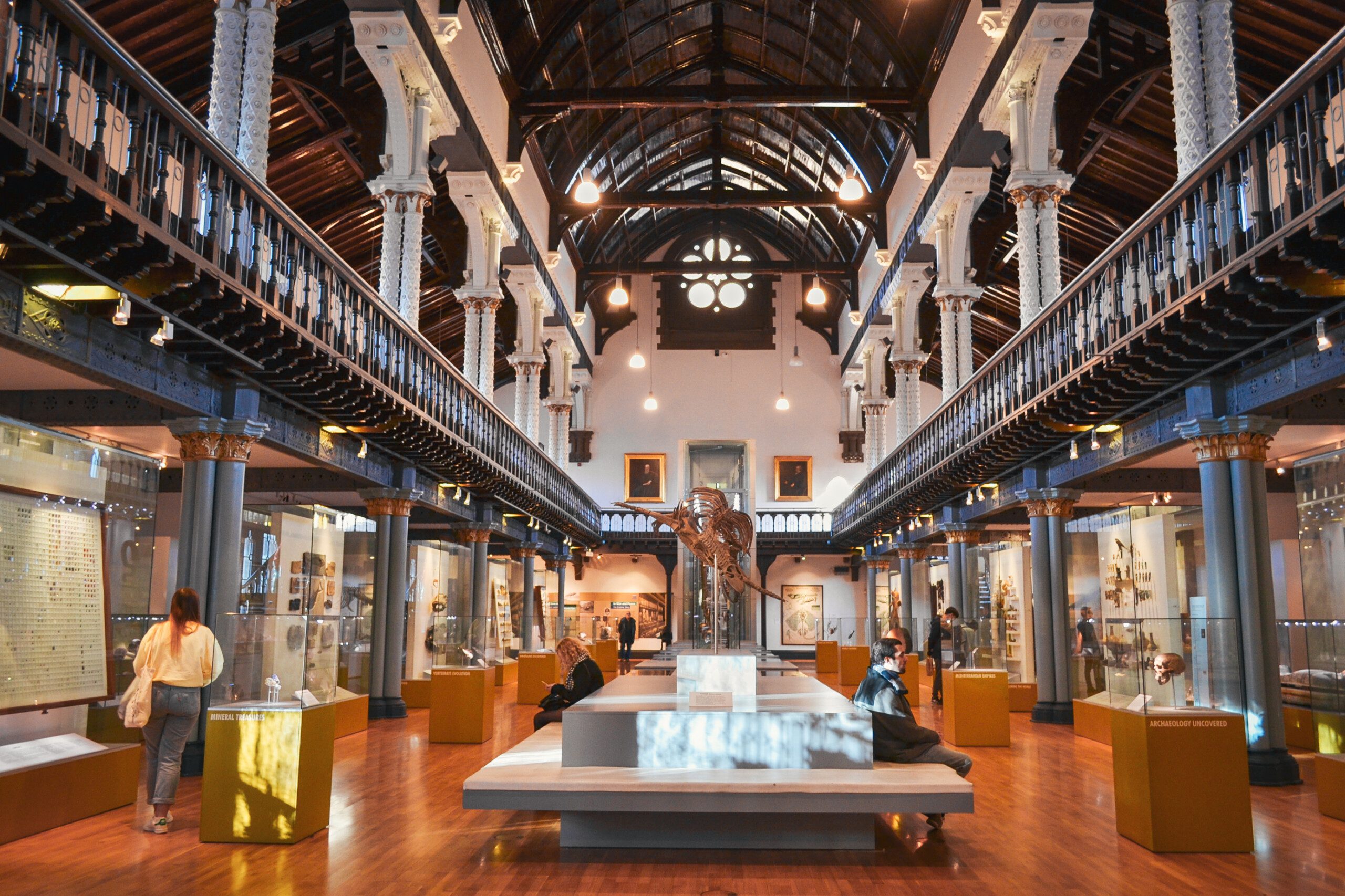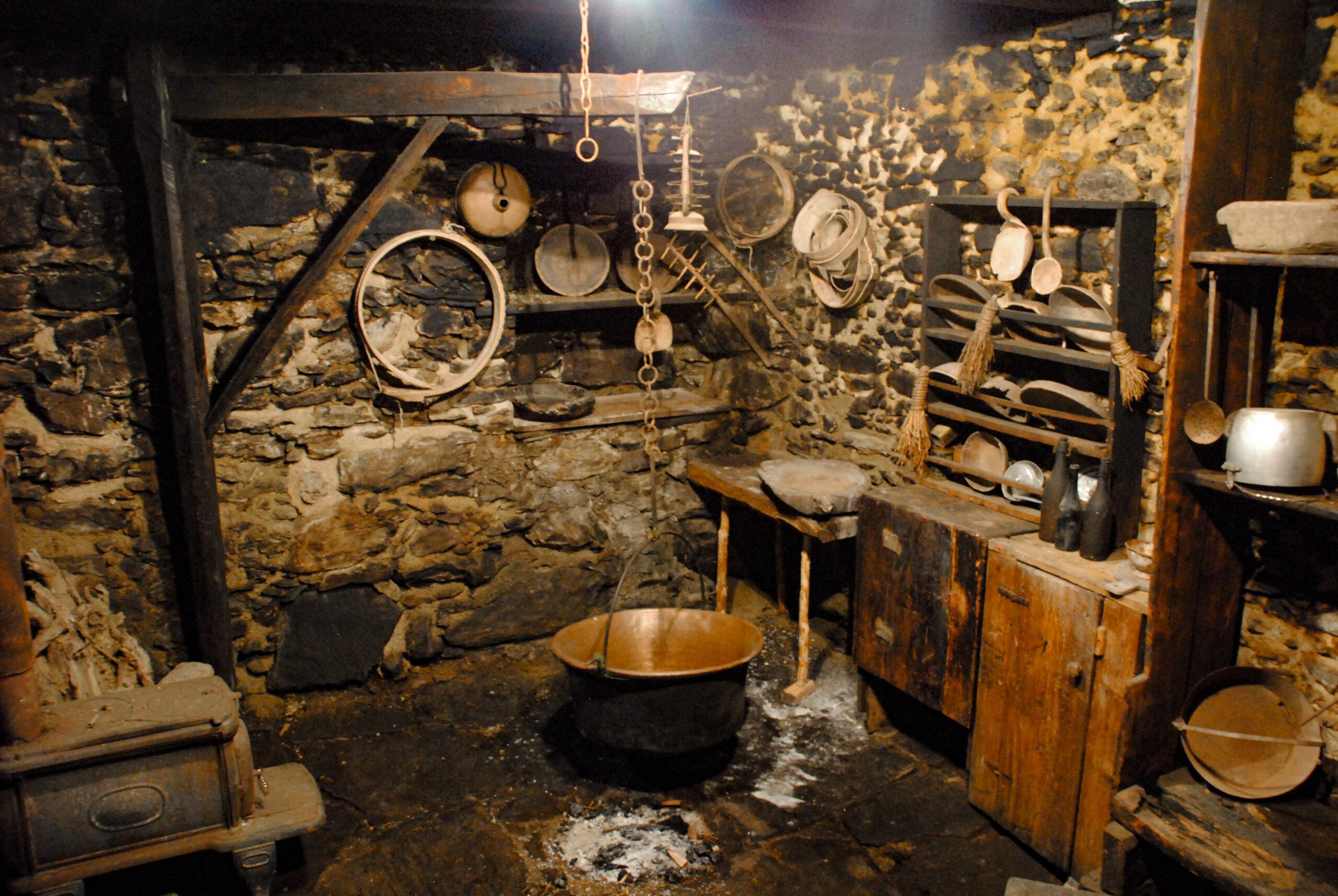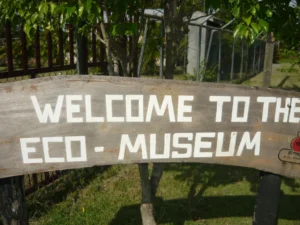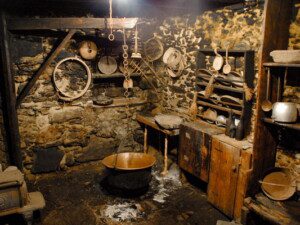Archaeologist: Reference scheme

Scheme B) Profession not regulated but built with (non-binding) regulatory references
The reference scheme is based on the 'modelSkills Cycle' and is in line with the 'Tourism, Arts, Heritage Competence Framework (TAH-CF)'. the TAH-CF is defined in accordance with the European Qualifications Framework (EQF), the Recommendation of the European Parliament and of the Council 2009/C 155/02 (ECVET) and the APNR (Non-Regulated Professional Activities) scheme adopted by UNI for the technical standardization of unregulated professions.”
Description
PPC4: Archaeologist (VI-VII-VIII EQF Level)
The Archaeologist carries out activities of identification, research, knowledge, education, training, protection, protection, management, valorisation, communication, promotion, dissemination, planning, programming, relating to archaeological assets in their broadest value as an asset of interest, context, site and anthropized landscape. These activities are aimed at the historical and cultural reconstruction of past societies, on the basis of sources of different nature that are unique and unrepeatable, as well as at the protection, protection, valorisation and use of the assets and contexts that form the object of these activities, as according to the specific dictates of Law 110/2014 art.1.
It is a profession of high intellectual content and considerable complexity, which is carried out both in public and private institutions and as self-employed workers. It requires specific cultural, scientific, methodological, technical and ethical training, obtained through educational, training and refresher courses of a theoretical and practical nature.
Standards of Reference
- European Qualification Framework (EQF)
- Recommendation 2009 / C 155/02 (European Credit System for Vocational Education and Training - ECVET)
- Law 4/2013 relating to non-regulated professions
- Ministerial Decree 244 of 20/05/2019 of the MIBACT - annex 2
Specific tasks and activities (from Ministerial Decree 244 of 20/05/2019)
- A. Identify, analyse, document and enhance landscapes, sites, monuments, contexts and archaeological assets, including underwater ones, interpret the processes of formation of archaeological deposits. Participate in working groups aimed at territorial and urban planning. Carry out consultancy and appraisal activities on archaeological sites, contexts and assets, including in the forensic and landscape fields
- B. Protect, conserve and enhance sites, contexts, monuments and archaeological assets of the historical landscape and their significance within the construction of new landscapes.
- C. Coordinate, in urban planning, the specific actions envisaged on archaeological assets; Carry out, in concert with other professional figures, landscape organization activities in the area.
- D. Managing museums and places of culture, archaeological areas and parks and curating collections and exhibitions of archaeological assets
- E. Carry out study, research and communication of the results of said research in the scientific and popular fields, training, education, planning, programming and communication in the field of archeology and related and related disciplines.
Each of these tasks characterizes the profile of the Archaeologist and groups together the activities that the professional is called upon to carry out, with different degrees of responsibility, competence or specialization based on the three bands (I, II, III) into which the qualification has been divided in accordance with EQF levels 8, 7 and 6.
An Archaeologist, respectively of I, II and III bands, is someone who has a profile compliant with these tasks and carries out or has the preparation to carry out with full competence at least one of the activities that characterize the respective band.
Carrying out activities under coordination, typical of the activities characterizing the III band, does not allow operational autonomy in the intervention on the Properties.
Please remember that, within the scope of the activity of Archaeologist, the exercise of some specific activities is reserved for those in possession of specific characteristics:
– Execution of Preventive Archeology Investigations with issuing of the Final Document pursuant to Legislative Decree 50/2016 art. 25 (Professionals with a degree and specialization in archeology or a PhD in archaeology.
– Technical Management of OS25 regulated by Ministerial Decree 22 August 2017 n. 154, art 13, co. 3c (Professionals with a degree and specialization in archeology or a PhD in archaeology).
– Archaeological excavation testing (OS 25) regulated by Ministerial Decree 22 August 2017 n. 154, art. 24 co. 4 (Professionals in possession of a university degree with specific experience and professional skills consistent with the intervention with at least five years' experience).
Please note that, pursuant to the Knowledge assessment, the following disciplines are considered archaeological subjects: L-ANT/01 Prehistory and Protohistory, L-ANT/02 Greek History, L-ANT/03 Roman History, L-ANT /04 Numismatics, L-ANT/05 Papyrology, L-ANT/06 Etruscology and Italian Antiquities, L-ANT/07 Classical Archaeology, L-ANT/08 Christian and Medieval Archaeology, L-ANT/09 Ancient Topography, L-ANT /10 Archaeological Research Methodologies, L-FIL-LET/01 Aegean Civilizations, LOR/01 History of the Ancient Near East, L-OR/02 Egyptology and Coptic Civilization, L-OR/05 Archeology and Art History of the Near East Ancient, L-OR/06 Phoenician-Punic Archaeology, L-OR/11 Archeology and History of Muslim Art, L-OR/16 Archeology and Art History of India and Central Asia; GEO/01 Paleontology and paleoecology.
For the activities, please refer to Annex 2 of Ministerial Decree 244 ARCHAEOLOGIST
Profile Evaluation Criteria
To certify the possession of skills, it is proposed to take into consideration methodologies that take into account the following aspects in a non-mutually exclusive manner, i.e. possibly in combination with each other:
- Qualifications awarded in the academic field (Formal Learning)
- Specific Training (Non-Formal Learning)
- Work or Professional Experience (Informal Learning)
Work or professional experience can be demonstrated through various tools including:
- Curriculum Vitae
- Professional portfolio
- Objective placement on the market (awards, regional, national or international recognition)
- Publications (scientific or editorial)
Requirements for access to the professional figure
Since the professional figure is not organized in an order or college, the requirements may vary based on the relevant Professional Association or other criteria established by the individual interested parties.
Below are the requirements adopted by AIPTOC - Italian Association of Tourism Professionals and Cultural Operators.
To certify possession of the skill requirements relating to the profession, the information indicated in Ministerial Decree 244 is attached
To certify possession of the skills, abilities and knowledge requirements relating to the profession, the information indicated in Ministerial Decree 244 is attached.
Archaeologist I Band 8 EQF level
Four-year degree in Literature or Cultural Heritage or Conservation of Cultural Heritage, with an archaeological focus, integrated by the subsequent third level of training, specialization diploma or specialization in Archeology (three-year) or achievement of a PhD in Archaeological disciplines (DM 60/09) 2, plus at least 12 months, even if not continuous, of documented experience (which also includes internships completed in said third level training within the activities characterizing the profile).
OR
Specialist or Master's Degree in Archeology, including interclass (S/2 or LM/2+), integrated by the subsequent III level of training, specialization diploma or specialization in Archeology (two-year) or achievement of a PhD in Archaeological disciplines (DM 60/ 09) 3 or two years of post-graduate training (two-year research or second level Master's degree with final paper, or two annual university Master's degrees, at least one of which is level II with a final paper in application fields of archaeological disciplines), plus at least 12 months, even if not continuous, of documented experience (which also includes internships completed in said third level training within the activities characterizing the profile).
OR (transitional requirement, reserved for those who meet the requirements at the date of publication of the notice)
Be in possession of one of the following qualifications: – Four-year degree in Literature or Cultural Heritage or Conservation of Cultural Heritage with an archaeological focus; Specialist or Master's Degree in Archeology (S/2 or LM/2); Specialist or Master's Degree in Sciences for the Conservation of Cultural Heritage (11/S-12/S or LM/11), in Philology, Literature and History of Antiquity (15/S or LM/15), in Historical Sciences (LM 84), provided that they have 90 CFU in archaeological subjects4 achieved during their studies; Specialist or master's degree in disciplines connected with archaeological research in scientific disciplinary sectors in the BIO and GEO fields and in other similar and integrative SSDs already present as characterizing subjects in the ministerial tables of the S/2 and LM 2 degree classes not expressly included in the SSDs listed above, provided that they have 90 CFU in archaeological subjects achieved during their studies;
integrated by the subsequent third level of training, consisting of:
– advanced diploma or specialization in Archeology plus at least 12 months, even if not continuous, of documented professional experience (which also includes internships completed in said third level training within the activities characterizing the profile).
– achievement of a PhD in archaeological disciplines (DM 60/09) or with a thesis on an archaeological topic plus at least 12 months, even if not continuous, of documented experience (which also includes internships completed in said third level training in scope of activities characterizing the profile).
– two years of post-graduate training (research or second level master's degree lasting two years with final paper, or two annual university master's degrees of which at least one level two with final paper in applied fields of archaeological disciplines) plus at least 12 months, even non-continuous, with documented experience (which also includes internships completed in said third level training within the activities characterizing the profile).
– one year of specialization or annual master's degree in Archaeology, plus at least four years of professional or research experience following competitions or public contracts in the archaeological field at a public institution or teaching archeology or related disciplines at universities and Higher education institutes.
– five years, even if not continuous, of documented professional or research experience following public competitions or archaeological contracts.
Archaeologist II Band 7 EQF level
Four-year degree in Literature or Cultural Heritage or Conservation of Cultural Heritage, with an archaeological focus, supplemented by at least 12 months, even if not continuous, of documented professional or research experience following public competitions or archaeological contracts.
OR Specialist or Master's Degree in Archeology, including interclass (S/2 or LM/2+), supplemented by at least 12 months, even if not continuous, of documented professional or research experience following public competitions or contracts in the archaeological field.
OR (transitional requirement, reserved for those who meet the requirements on the date of publication of the announcement) Specialist or Master's Degree in Sciences for the Conservation of Cultural Heritage (11/S-12/S or LM-11) or in Philology, Literature and History of Antiquity (15/S or LM/15) and Historical Sciences (LM 84) with a minimum of 90 CFU in the sectors listed above as well as in those connected with archaeological research in scientific disciplinary sectors in the BIO and GEO fields and other similar and integrative SSDs already present as characterizing subjects in the ministerial tables of the S/2 and LM 2 degree courses not expressly included in the SSDs listed above, supplemented by at least 12 months, even if not continuous, of documented professional or research experience following public competitions or archaeological contracts.
Archaeologist III Band 6 EQF level
Three-year degree in archaeological disciplines, Class 13 according to Ministerial Decree 509/99 or class L1 Ministerial Decree 270/04 with an archaeological focus with a minimum number of credits in the historical-archaeological disciplines corresponding to 60 CFU, plus at least 12 months, even non-continuous, of documented professional experience, within the activities characterizing the profile.
-
Related searches on the Skills Archive Databases (UNDER IMPLEMENTATION)
Training courses that release the professional competence in question: PPC courses4
Professionals with the relevant professional competence: PPC Professionals4
Featured Heritage Interpretation
Featured training
Basic courses
High Specialization Courses





















